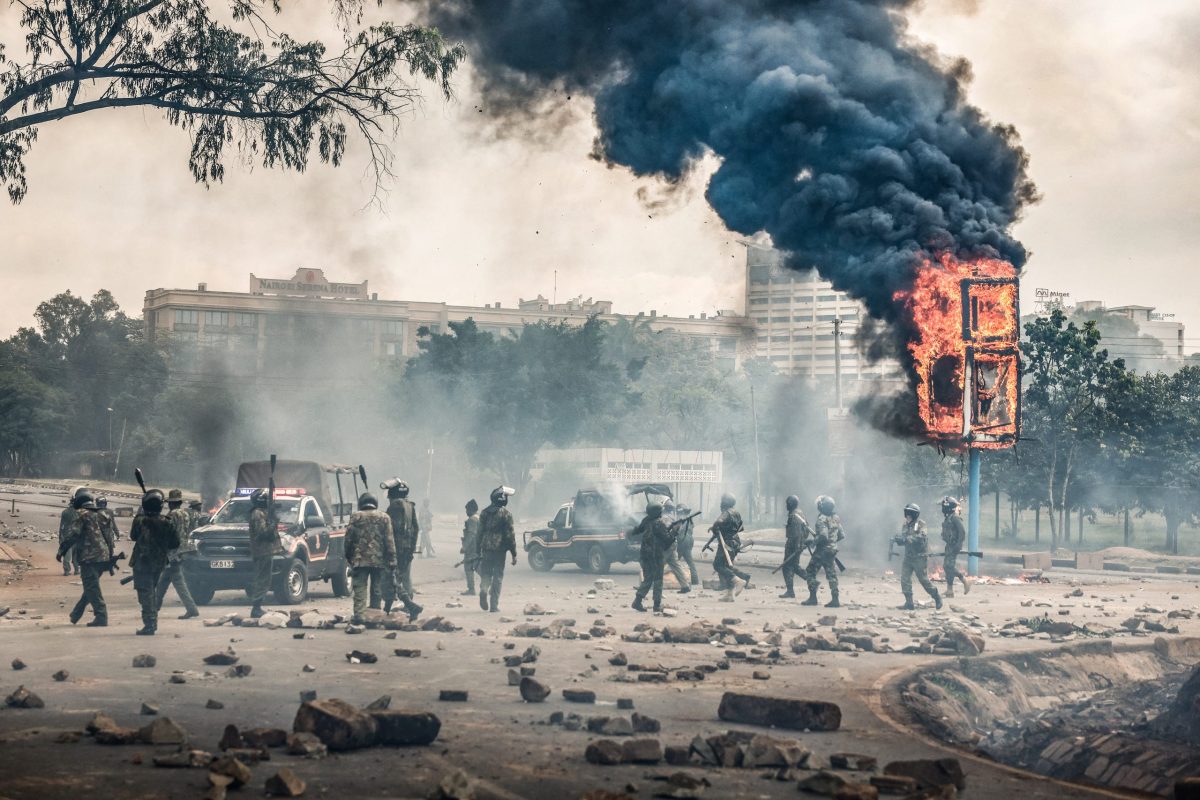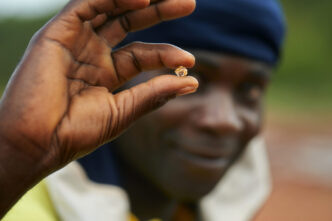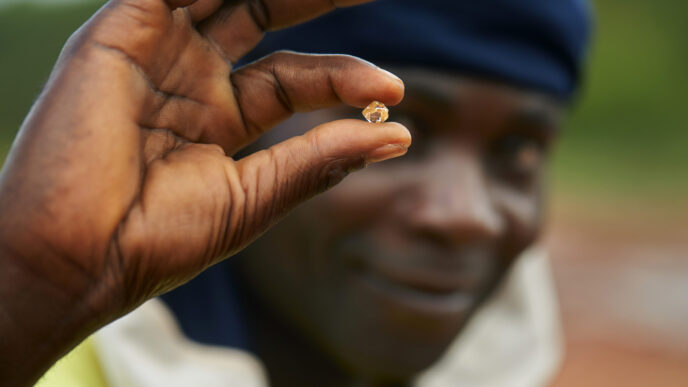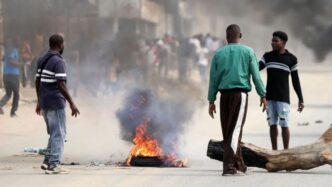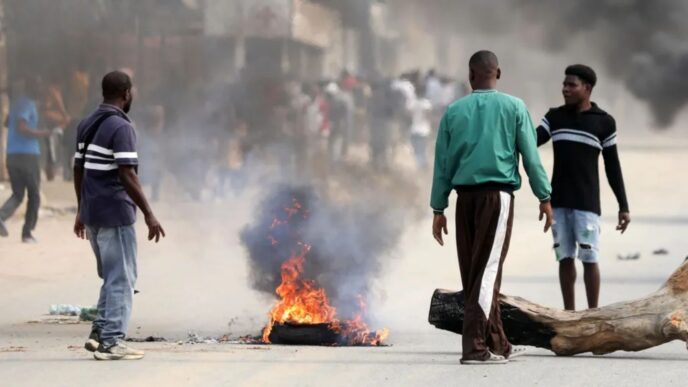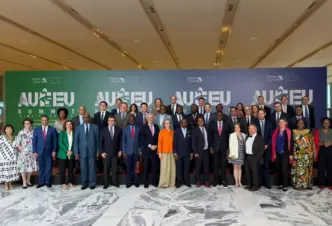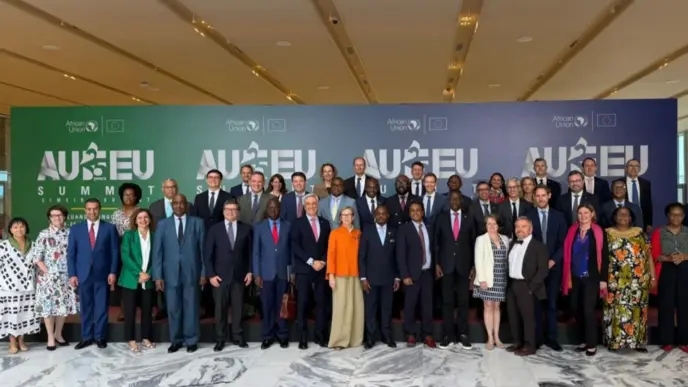Four people were killed in Luanda on Monday as violence erupted during a taxi strike sparked by rising fuel prices, the Angolan police confirmed.
The first day of the strike saw widespread looting across the capital, with demonstrators targeting public buses and private vehicles in a continuation of unrest following the July 1 fuel price increase.
Deputy Commissioner Mateus Rodrigues told reporters on Tuesday that “in terms of consequences, we currently report four deaths,” though he did not disclose the circumstances surrounding the fatalities.
According to Rodrigues, police detained 100 people on Monday and arrested an additional 400 overnight for their suspected involvement in the violence. He reported that 45 shops had been vandalised, while 25 private vehicles and 20 public buses were damaged during the chaos.
Photographs captured by AFP on Monday showed looters fleeing with stolen goods, while videos circulated on social media revealed large crowds clashing with police. In one clip, a demonstrator appeared to attempt to set fire to a billboard featuring President João Lourenço.
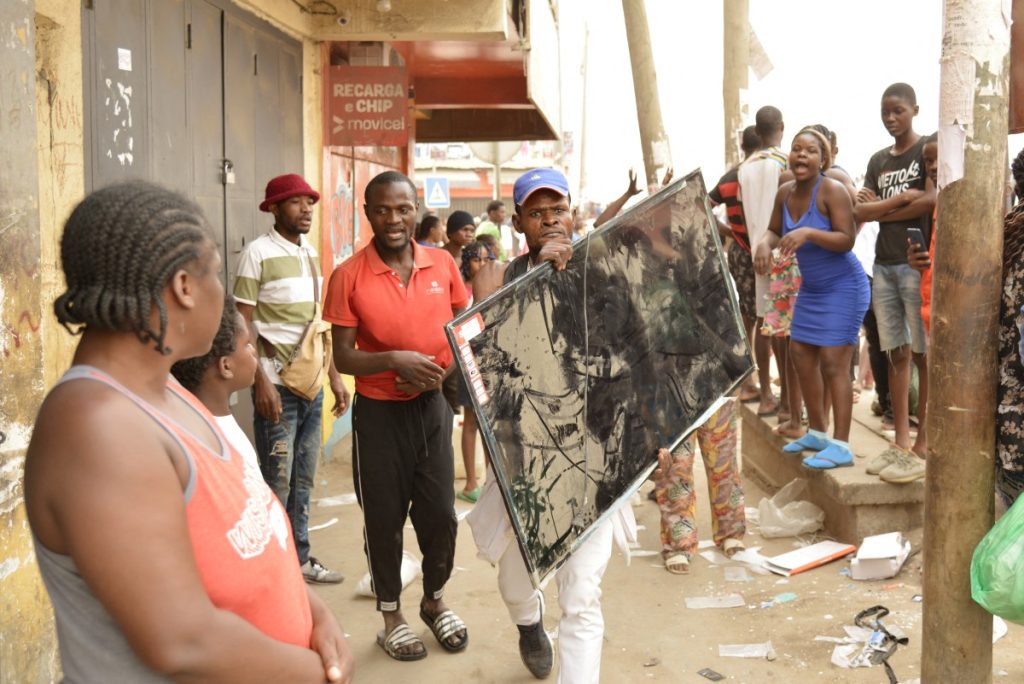
The unrest followed the government’s decision to raise the price of heavily subsidised gasoline from 300 to 400 kwanzas ($0.33 to $0.43) per litre, making it the latest in a series of protests against the move. Around 2,000 people had demonstrated against the price hike on Saturday, with similar protests taking place over the previous two weekends.
The ANATA taxi drivers’ association, which organised the three-day strike, distanced itself from Monday’s violence but maintained its position on the protest. In a statement, the group said it “has become clear that the voice of the taxi drivers reflects the outcry of the Angolan people.”
Police said they would continue to monitor the situation closely. The spokesman stated, “We continue to stress that our forces are on the streets, equipped with the necessary resources based on the threat level, responding where order has been restored to maintain it, and intervening where there are still disturbances to reestablish public order and peace.”
Despite being one of Africa’s largest oil producers, Angola remains among the poorest nations globally. The ruling MPLA party, led by President Lourenço, has governed the country since its independence from Portugal in 1975.


 Trending
Trending 